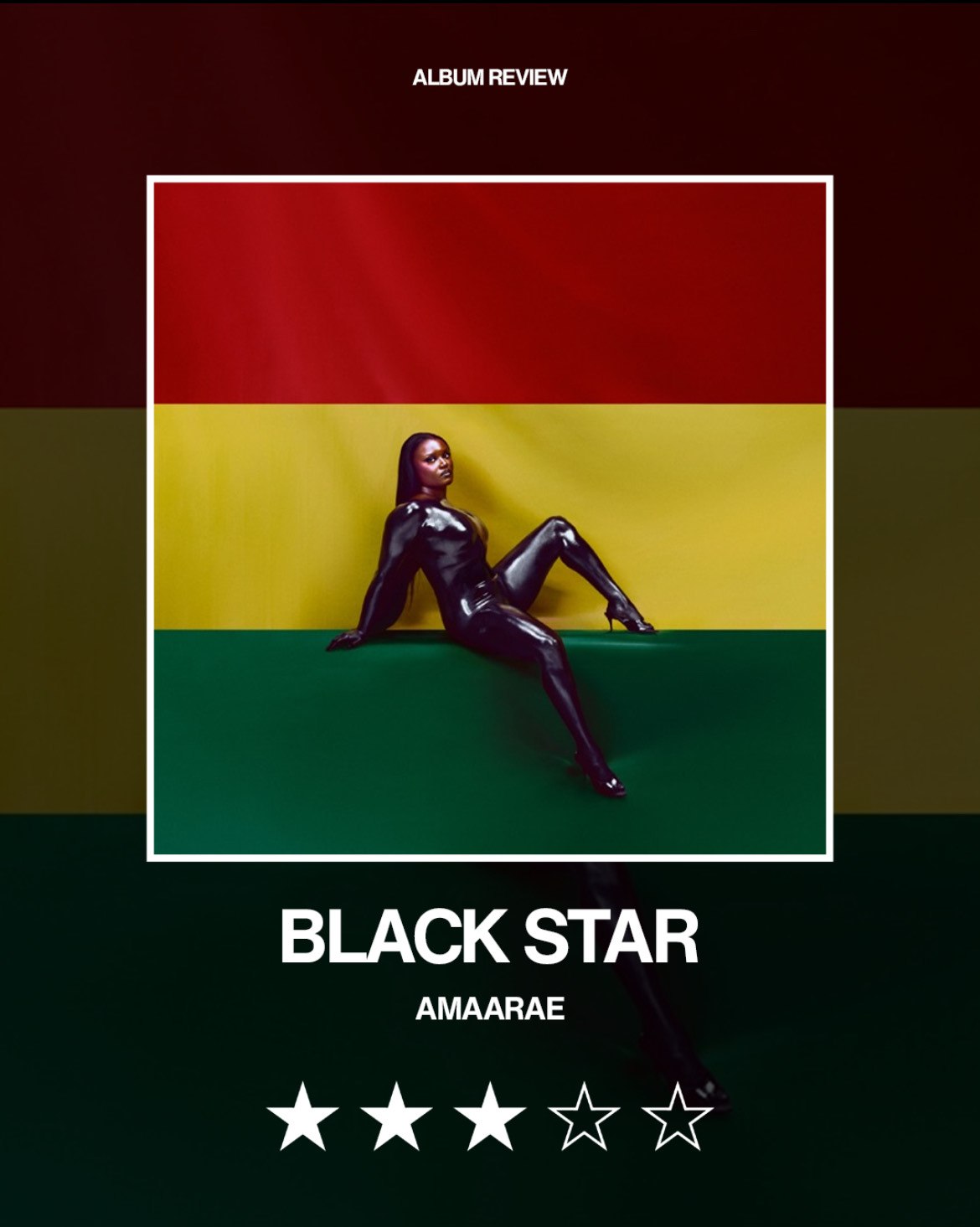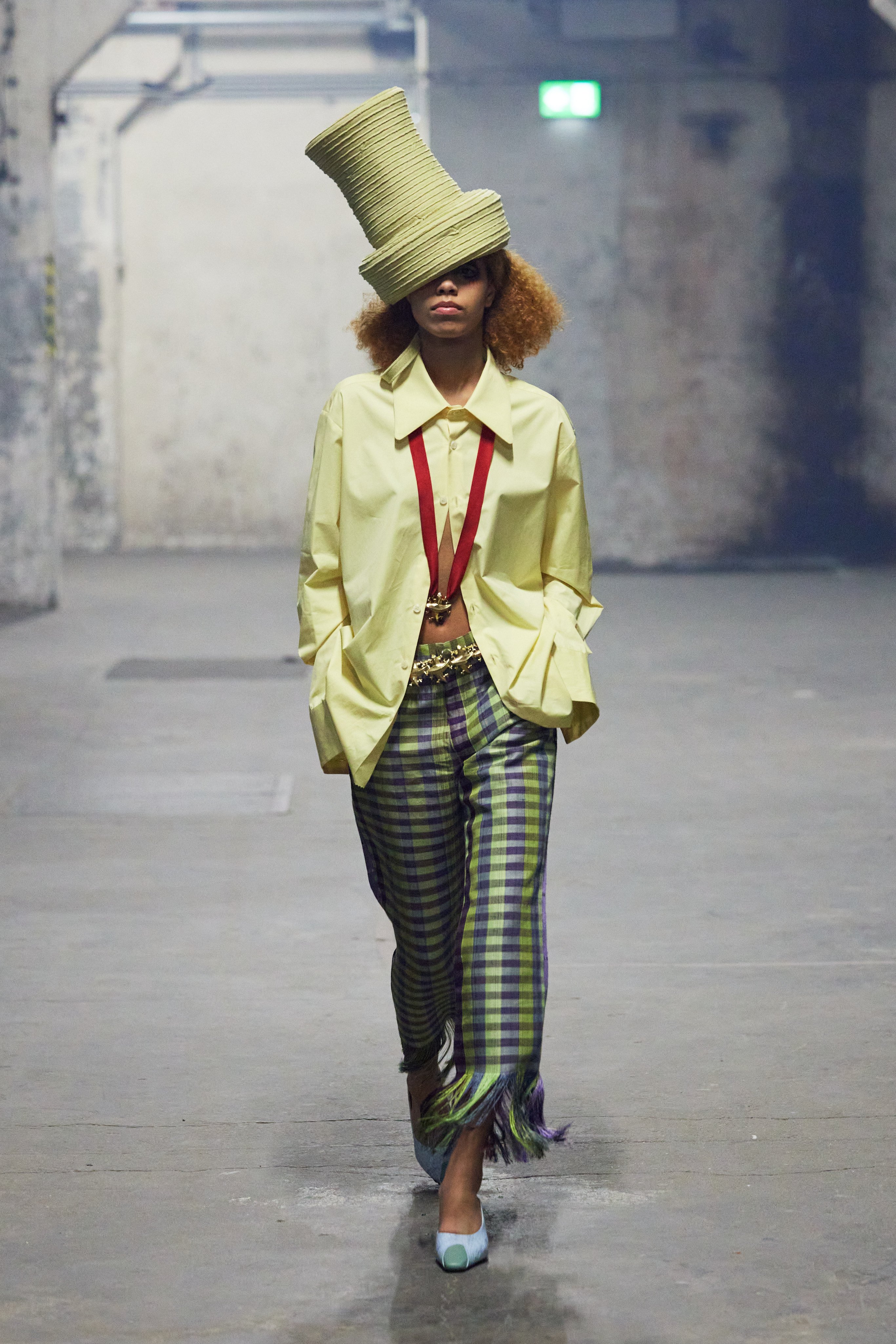In a global pop landscape increasingly defined by borderless sound, Amaarae continues to be a rare kind of cartographer—one who charts new emotional and sonic territories without discarding the compass of her West African roots. Black Star, her follow-up to the critically embraced “Fountain Baby”, is less a mere collection of tracks than a kinetic constellation: each song a blazing fragment that, when connected, forms a vision of futurism anchored in history. The album is a study in hybridity, a sound that doesn’t just blur genres but seems to liquefy them entirely, pouring them into the molten mold of her voice. It is an album built on the confident synthesis of sonic worlds that rarely intersect.
The opener, “Stuck Up,” hits like a strobe in a subterranean São Paulo club—its electropop chassis welded to the percussive grit of Brazilian funk. The lyrics don’t just pulse; they thump with the insistence of a bassline that refuses to release your sternum. This is music that doesn’t invite you to dance; it abducts you into movement.
“Starkilla” takes a different orbit—futuristic techno rendered with a spatial, almost zero-gravity sheen. Amaarae’s voice, cuts through like a beam of light refracted in deep space. By interpolating Kelis’s “Milkshake,” she collapses two decades of pop history into a seamless fold, rendering nostalgia as a launchpad.
The amapiano undercurrents emerge in “ms360” where log drums throb beneath a coolly commanding presence, of Naomi Campbell reading the lines ‘They call me a bitch, a villain, controversial diva, no. I am the Black star’ .This is Amaarae’s skill at its sharpest—making luxury and rhythm feel like synonyms.
On “Kiss Me Thru the Phone Pt2” featuring Pink Pantheress the tempo eases, and with it, the emotional register shifts. The lushness of her vocals carries a kind of vulnerable clarity, the kind that doesn’t so much fill a room but makes a very lone presence. Sampling Sisqó’s “Thong Song” and nodding to Soulja Boy’s 2008 internet-era anthem, she transforms kitsch into intimacy, reframing it as soft confession rather than digital flirt.
“B2B” is a rare feat of synthesis—electro drums and amapiano grooves converging into a midpoint where Spanish strings flare in a mid-song detour, changing the melody’s gravitational pull. The romantic motif deepens in “She Is My Drug” where longing is sculpted into melody. Amaarae’s vocals pierce through the production like sunlight through blinds—narrow beams illuminating the contours of desire.
The lead singles already hinted at the album’s scale. “Girlie Pop” is pure gloss, but it’s “S.M.O” that crystallizes her ethos. Infused with 1980s Ghanaian highlife and undergirded by Detroit club bass, the track feels like an archival record rediscovered and electrified—heritage made ecstatic.
Amaarae’s command over EDM emerges again on “Fineshyt”, where her lyricism doesn’t merely ride the beat; it fuses with it, like phosphorescent paint glowing against the throb of a club wall. On “Dream Scenario” A collaboration with R&B legend Charlie Wilson, this track gleams with the warmth of a meeting between generations. Their voices weave together like silk and steel, creating a calm, celebratory space that bridges eras of Black music.
“100DRUM” , where “Dream Scenario” is polished, wild and exhilarating. Distorted percussion (perhaps the titular hundred drums all at once) collides with submerged vocals in a dizzying whirl. Beneath the chaos lies a sweetness, proof that unpredictability can be beautiful.
The final track “FREE THE YOUTH” lands like a rallying cry. Heart-thumping percussion drives forward as Amaarae ties the album’s threads together — the cultural fusion, the genre-hopping, the defiance of expectation — into a sufficient thematic close. It’s a liberation anthem and a curtain call, ensuring Black Star ends not as a fade-out but as a brave punctuation mark.
Black Star is a luminous, shape-shifting project — too expansive for neat genre boundaries, too self-assured to dilute its vision. Every song is a new room in the same house: some lit in strobes, others in candlelight, all bound by the same foundation. By interweaving her West African roots with global pop futurism, Amaarae joins a vanguard of Black diasporic artists redefining the mainstream — not by asking for space, but by building new worlds entirely.
The album is alive with invention, and most of the time, that raw energy is its greatest strength. But there are points where ambition runs too close to excess. Some songs feel pitched just on the edge of coherence, threatening to collapse under the weight of their own ideas. Still, those are minor quibbles beside the bigger achievements: Black Star rides the tension between fusion and fragmentation, depth and danceability. It’s a project that insists you pay attention or give in.
.svg)







.png)

